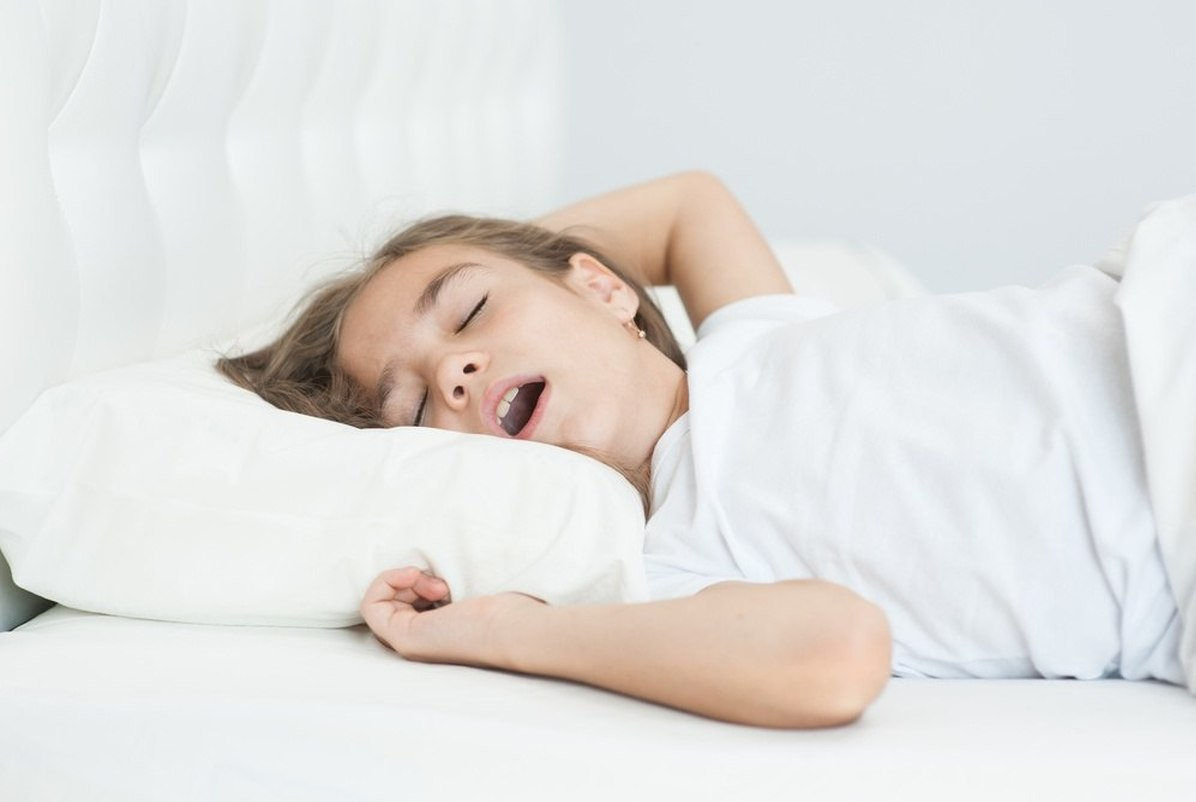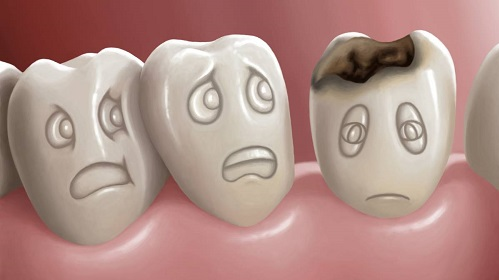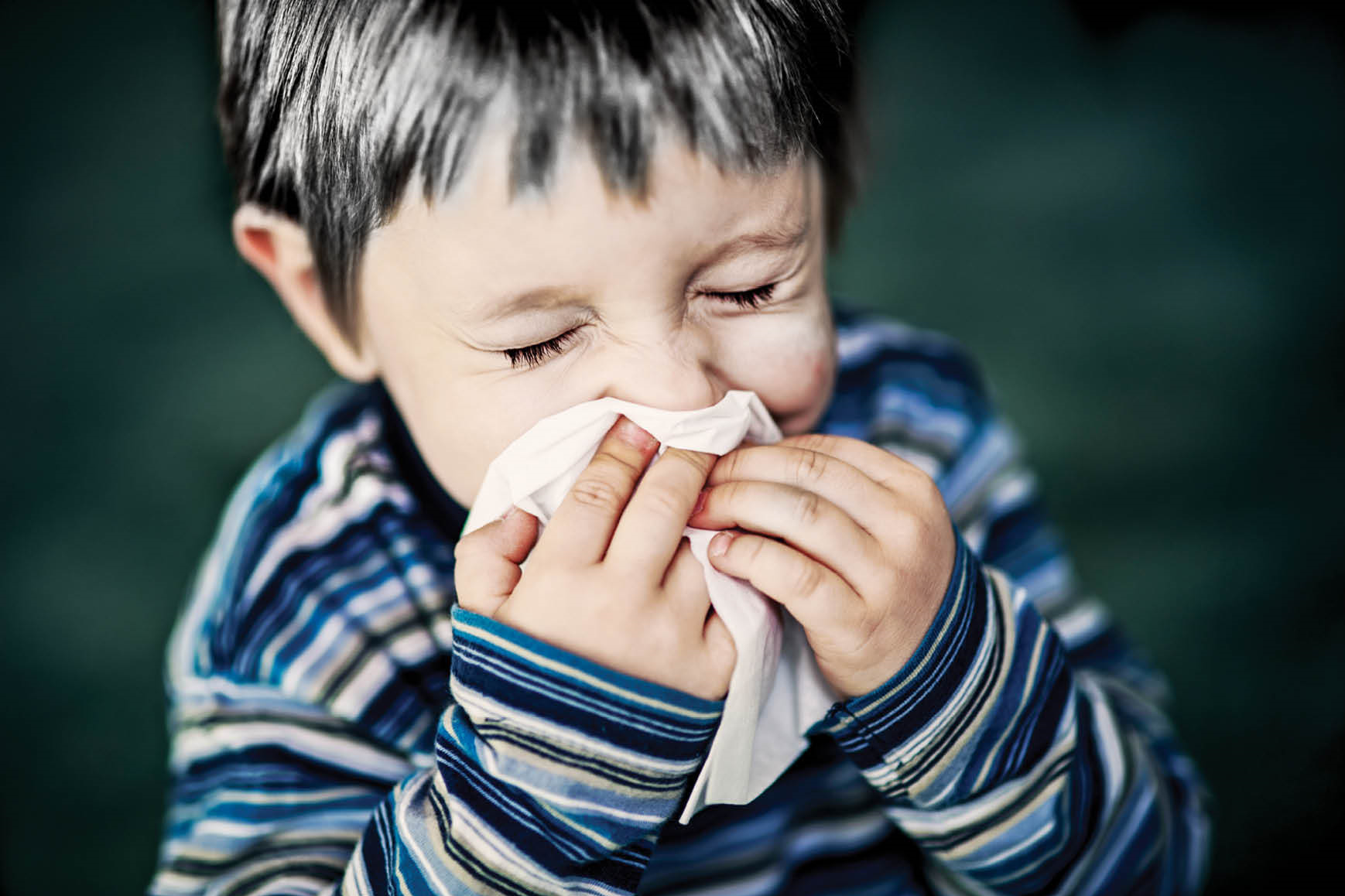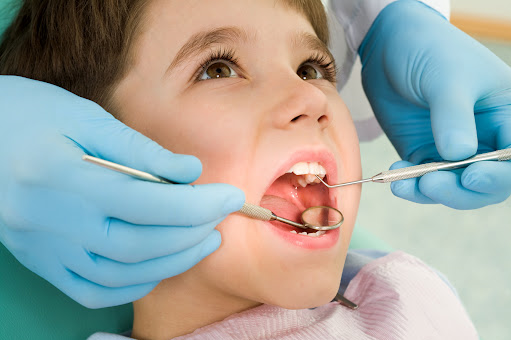Tooth decay is a painful souvenir of mouth breathing / Is your baby’s mouth open during sleep?

Life group; نعیما جاویدی: If your child is accustomed to sleeping with his mouth open, check this out carefully. Sometimes this habit can make you aware of a disorder in his body and prepare you to prevent further problems and provide treatment. However, this should not worry you in vain; Worry is useless and only raises your anxiety and distracts you from the correct stages of diagnosis and treatment. Breathing through the mouth does not always indicate a dangerous illness or condition, and in some cases is simply an involuntary habit and, according to traditional medicine, a sign of a cold in the head or gastrointestinal tract and can be easily treated. So you, as an informed and responsible mother, are supposed to monitor your baby’s symptoms and condition a little more closely; only this.
Why is it important from childhood ?!
The reason we look specifically at children is because adults are usually aware of the habit themselves and can pursue their own treatment, however, if they were aware of this as a child and take action It was used to treat them, resulting in significant savings in financial and time costs, and in some cases, complete cure may not be possible in adulthood.

Childhood is the golden age of treatment, except that the child is completely unaware of the problem unless those around him realize it and take it seriously. Breathing through the nose is generally important in two ways, first, it can be an alarm for some problems and diseases. Second, in the absence of disease, the desired level of oxygen uptake in the body is greatly reduced, which will have significant side effects in the long run. In some cases, the amount of oxygen received through the mouth is reduced to a third or more, in which case the person wakes up with suffocation and a feeling of heaviness in the chest. However, intermittent breathing, or irregular and intermittent breathing in sleep, heavy and difficult breathing through the mouth is not something that can be easily ignored.

When did you open your mouth ?!
Babies breathe almost completely through the nose unless their airway is blocked through the nose for a variety of reasons, such as a cold and a stuffy airway. In such cases, oral respiration is substituted due to the activation of brain alerts and the survival mechanism. In fact, by the age of 4 months, the baby has not yet experienced and learned to breathe well through the mouth, but as soon as he acquires this skill, sometimes he progresses to the point where he gets used to it! The child continues this process subconsciously at an older age. In some people, with the developmental stages, some medical procedures such as tonsil examination, treatment of ear, nose and throat disorders. Get used to it. They may even think that this is a habit and that it naturally falls out of the person’s head and the story ends there. However, not everyone is lucky enough to be familiar with the injuries and ways to treat this complication so that they can follow up and act in a timely manner.

20% nasal breathing helps to better absorb oxygen. Oxygen is one of the main nutrients in the brain, so when the body’s needs are well met, other organs will function better. Doing the right rhythm of breathing, inhaling and exhaling through the nose will help to expand your mind. The brain stays young. The heart will have a healthier heartbeat. The lungs become more resistant to disease, and this is an important point in the coronary period. In general, people have the right breathing process, their immune system is functioning better. All of this is enough to observe the process of our child’s breathing from infancy, following the benefits of “correct breathing” and the health of body and soul.

Regular dental clients!
And now, what are the harms of breathing through the mouth during sleep and to what extent can it harm the child’s health? The most common injuries are sleep apnea, dry mouth and tooth decay. This habit causes confusion in the process and appearance of teeth growth and dental and jaw problems. The child’s face gradually becomes elongated and thin, which is known as “adenoid” changes, that is, the back of the jaw and chin, which in adolescence and youth can severely destroy his self-confidence. One of the first questions a pediatric dentist asks parents of a child with a lot of decayed teeth is: Does your child sleep with his mouth open? Yes! Easily an involuntary habit can put such dental costs on your hands and make you a regular dental client. But how do these two issues relate to each other? At night, the acidic atmosphere in the mouth rises naturally. Saliva neutralizes this acid. Open mouth during sleep eliminates the beneficial saliva of the mouth and reduces its secretion process. Therefore, the teeth are defenseless against the increase of oral acid level, which can be a very erosive factor.

Mornings are hard …
Nasal breathing filters out air pollution and particulate matter. This is due to the presence of hair inside the nasal passage and its moisture, which absorbs the contamination and acts as a barrier against it. Therefore, the air sent from the nose to the respiratory tract is purified to an acceptable level of pollutants harmful to the respiratory system. This seemingly simple matter allows more air to stop in the lungs, resulting in more and better oxygen uptake. Breathing through the mouth, however, does not have this ability at all and leads to a decrease in the absorption of oxygen in the body. On the other hand, pollutants easily enter the respiratory system and these people are more prone to disease. A single cough, the feeling of a sticky and annoying piece of sputum remaining in the airway to the mouth to the lungs, heaviness of the head and dry cough and bloating, heart palpitations and a feeling of heaviness in the body in the early hours of the day are common symptoms that these people experience. This is due to the entry of contaminants and the reduction of useful and necessary moisture for the respiratory and digestive systems.

Asthma, allergies and sinusitis
It has any cause, including sleeping with the mouth open and breathing through the mouth. It remains to be seen what diseases cause the child to subconsciously replace seven, eight hours of sleep with the mouth closed and sweet and comfortable breathing through the nose with unpleasant breathing through the mouth? The answer is not complicated and far from the mind; Diseases such as “asthma”, “allergies” and “sinusitis” are the most important factors for a child to sleep with his mouth open. In these diseases, the child is forced to breathe through the mouth due to the closed or semi-closed nasal airway. On the other hand, this method of breathing increases the likelihood of coughing and sleep apnea, which eventually become an annoying and almost serious problem. Of course, environmental stimuli should not be ignored; Cigarette smoke, airborne particles, plant pollen and chlorine vapor in the pool can also aggravate allergies, asthma and sinusitis, and the healing process; Make sleeping with your mouth closed longer.

Citrus is useful …
Now that we are familiar with this complication and its causes, we must see what has made us to use our chance to treat our child at home with this problem? Keeping your child away from areas contaminated with cigarette smoke, smoke, chlorine vapor, plant pollen, and the like is one of the first steps we need to take. This simple step may not solve the problem, but it does help the baby experience a better breathing rhythm and receive more oxygen during sleep. At least do not aggravate his respiratory problems. Cold incense is also useful. This fumigation increases humidity and better absorption of oxygen in the environment. It is not bad to know that increasing humidity prevents the closure of the nasal passage and exacerbation of sinusitis. Turning on the cold fumigator in the child’s living environment for a few hours a day will help absorb more oxygen and keep the nasal mucosa and sinuses moist. When the nasal airway is free of inflammation and healthy, the body automatically prefers nasal breathing to mouth breathing. The next way is to pay attention to nutrition. Pineapples, oranges, grapefruits, lemons and citrus fruits, because they contain vitamin C, strengthen the immune system. This helps prevent sinus problems and nasal polyps. Rinsing the nose and mouth with dilute salt water or rinsing serum is also very useful, effective and inexpensive.

Get acquainted (gain, obtain) with present-day techniques that came from Treatment
Drinking enough water and fluids, especially during the day, has a good effect on keeping the nasal mucosa and sinuses moist. Do not use hand and face creams, washing powders and perfumes and scented incense in the child’s bedroom because it irritates allergies. In some cases, however, home remedies are not enough and the need to see a doctor remains strong. If your child has asthma, he or she may need to inhale medication and respiratory sprays. Taking antihistamines and immunotherapy (immunotherapy) is also useful for treating allergies, and it may be recommended to you, so it is not bad to have studies and information about it and choose the best ones so that you do not suffer from possible side effects. If the medication does not cure the third tonsil and nasal polyp, your doctor may prescribe surgery.
End of message
.

